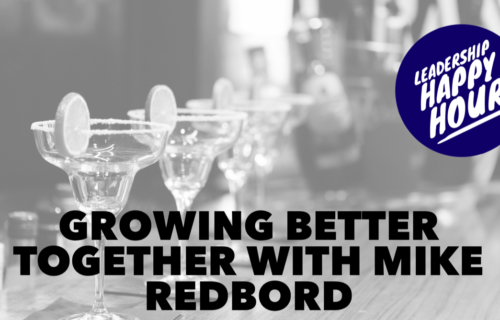Build Communities
 Standing there (in nothing but a large pair of boxer shorts) during my first 2 days of Navy Boot Camp, I stenciled my clothes as quickly as my chubby hands could get them done while the person next to me, obviously stressed, was crying as he was doing his within the allotted time limits (quietly, I was thankful that my last name was only four letters and not 10 like his). Abruptly, a loud bellow came from the front of the room, “Hey, Fatboy! You gonna lose that spare tire while you’re here!?” Shaken by the decibel level increase, I looked up and looked around. My eyes then met the originator of the call. “Yes, Fatboy, I’m talking to you!” I nodded, and called back, “Yes, sir, I’m going to lose it!”
Standing there (in nothing but a large pair of boxer shorts) during my first 2 days of Navy Boot Camp, I stenciled my clothes as quickly as my chubby hands could get them done while the person next to me, obviously stressed, was crying as he was doing his within the allotted time limits (quietly, I was thankful that my last name was only four letters and not 10 like his). Abruptly, a loud bellow came from the front of the room, “Hey, Fatboy! You gonna lose that spare tire while you’re here!?” Shaken by the decibel level increase, I looked up and looked around. My eyes then met the originator of the call. “Yes, Fatboy, I’m talking to you!” I nodded, and called back, “Yes, sir, I’m going to lose it!”
Although it was a nickname I did NOT want to identify with, I did lose the weight and (little did I know) that this introduction to military service was, in fact, the best thing to ever happen to me. Prior to this, I had never quite felt like a part of anything. This grouping of misfits, outcasts, and socially questionable people came to be my family – a community of people that bonded together when times were tight, stressors were high and jobs needed to get done. Throughout my 22 years of service, it was never about the team, it was about the community – what we could do as a group that was commendable, worth doing, and enjoyable (most of the time) while we were accomplishing it. The Encarta Dictionary defines community as “a group of people with shared interests within society.” Communities of people get more done – leveraging their differences as one force for the good of the whole. Are you building great communities? Here’s how to tell:
Rapport
Although a little tough, in retrospect, what the “fatboy” comment taught me was that we were all humbly in the same boat. Yes, I was able to stencil my uniforms quicker than the gent next to me but that didn’t make me any better. Regardless of where we come from or, even, how long our last name is (or isn’t), communities do not foster competition between members. Rather, they foster a oneness of purpose and of shared meaning. Shared meaning, organizationally, gives a group a focal point for communicating and moving forward. As a leader, I never hesitated to roll up my sleeves and get dirty. This helped in creating the “we’re all in this together” rapport that was needed to hamper competition, leverage individual strengths, and foster oneness of purpose. Rapport builds relationships and, quite simply, binds us emotionally together.
Reciprocity
What I love about my community now is the same thing I loved about being in the Navy. I always know that someone has my back. Currently, if I get up earlier than my neighbor on a snowy day, I take care of his walkway. On days he’s up and at it early, he does the same. After being jolted by the bolstering voice of the Company Commander while stenciling, I reached over and helped my long lettered neighbor get through his mess. Yes, at the time, I would have done anything to get the focus off my portliness but helping my neighbor did the trick. I was left alone and slapped on my portly back for helping out a shipmate. Building a community within your organization doesn’t have to take a negative spin and can be as easy. It’s as easy as rewarding those who go out of their way to lend a hand to another. What are the mechanisms in place to recognize and reward that kind of servant stewardship where you are?
Recreation
Having fun is the social grease that makes the community machine function smoothly. What’s best is that recreation helps to build rapport and the want to help each other out. I like to think of it like this: When I know and laugh with someone, I know them on a different plane – more personally. We’ve communed in way that is unique and binding. During my boot camp months, our group perpetually laughed at the incongruent nature of our lives and how we ended up there at that place. We also laughed at our mistakes as we helped each other get better. My current community has the same feel when we get together to barbecue in the backyard or meet at the school for an ice cream social. This is the easiest thing we can do to build community in our workplaces – let off the gas and allow people to have fun, laugh, and enjoy what they do and who they do it with.
In the end, I enjoy being part of a community much more than being on a team. The feel is just different. When I’m part of a community, I don’t feel encumbered by rank, title, or circumstance – I feel free to explore, speak up, and contribute because I know that I have something that provides value to the whole and we’re all in this together. I’ll never forget that day stenciling (nearly naked and ashamed). Not because I was “called out” for being a fatboy but because it was my introduction to a community of people that served each other and served something larger than themselves.




